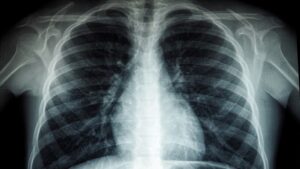[ad_1]
For something as ubiquitous as sex – almost everyone has come into the world because of it – there’s a lot of secrecy surrounding it. Some myths surrounding this topic seem to be “ageless” and persistent, despite the availability of information about it:
How not to get pregnant
For example, many people still believe that if a girl takes oral contraceptives (“the pill”), she and her partner will not get sexually transmitted infections (STDs). This is incorrect. The pill can protect against pregnancy, for the most part, but a condom is also necessary if STDs are to be avoided.
Note that withdrawal of the male organ before ejaculation is not a foolproof way to prevent pregnancy, nor will it prevent STDs, which depend on the amount of skin-to-skin contact, not just contact with semen.
If a single condom offers a high degree of protection against STIs and pregnancy, two should be better, right? Again, no, because two condoms are often more difficult to apply correctly, and the added friction between them can actually promote condom breakage and increase the chances of unintended pregnancy.
And it’s not a good idea to store condoms in cars, purses, etc. These devices are made of material that breaks down when exposed to heat and friction. Recommended storage is in cool places such as your bedroom drawers.
Again, if a condom is put on incorrectly the first time and needs to be put on again for proper use, the original condom should be discarded, as semen may well have come into contact with the surface next to the skin, which is now the external, ready to contact the bay.
Also, showering or bathing after sex does not prevent pregnancy. It is much better to use birth control. Even with contraceptives like the pill, protection only starts after about a week of taking the medicine. During this period, therefore, it should be used as a backup condom.
Contraception and STDs
If a girl and a boy sit together, kiss, hug, or even touch each other with their clothes, pregnancy will not occur, as this requires the sperm in the semen to reach the uterus to fertilize an egg inside the fallopian tubes that open it. organ.
Conversely, if the sperm is ejaculated just outside the vagina and if the vaginal area is moist, the sperm can swim through the vagina to cause pregnancy.
It doesn’t necessarily take more than one act of vaginal intercourse to get pregnant, and no sexual position protects against pregnancy. For example, sex in a pool or a bathroom, or while standing up, is still sex, and as long as the sperm are introduced into the vagina or very close to the vagina, pregnancy can occur and STDs can certainly be transmitted.
Having sex during a menstrual period can also lead to pregnancy, but if a period occurs immediately after intercourse, pregnancy is unlikely.
Vaginal sex is not the only type of sexual activity that can cause STD transmission, so condoms should be used anew with each new act of sex. In fact, the mucous membrane of the anus is unsuitable for sexual acts, it is thin and easily damaged, which is responsible for the rapid entry of sexually transmitted disease pathogens after anal sex.
HIV was one of the most feared STDs until very recently. However, many people still believe that only gay men get this infection. The truth is that anyone can get HIV through unprotected sex with a partner who has HIV, unless protection is taken before exposure.
At the same time, HIV is known to be transmitted only through sexual fluids (semen and vaginal fluid), blood and breast milk, while urine, saliva and tears do not contain the virus. However, if the male organ comes into contact with cuts and nicks caused by shaving, for example, or infected hair follicles, HIV can be transmitted through the blood or blood discharge at these sites.
Many also believe that it is always obvious if someone has an STD and are therefore willing to take risks such as unprotected sex with an apparently healthy partner. The fact is that up to half of all sexually active young people have an STD, and many may have no symptoms. However, they can spread the infection just the same. The only foolproof way or safe way to prevent the occurrence and spread of an STD is to have an annual sexual health exam to rule out the presence of such infections.
Since oral sex does not cause pregnancy, is it safe? The answer is that oral sex, like any other type of sex, can allow the transmission of STDs, although it certainly does not allow pregnancy to occur.
Useful sex education
Talking to children about sex in an understanding and sensitive way usually helps them understand the basics of how it works and the problems that can arise if they have sex without the right environment. In addition, school sex education programs around the world explain the value of abstinence as a measure to prevent the need to deal with sex-related complications before the child is ready.
Knowing that abstinence is a valid and widely practiced choice often relieves the pressure on children to have sex just to keep up with their peers. And being informed about sex helps them make their own good choices, instead of rushing into thrills and trouble they can’t handle.
Young people should also know that the excitement of watching pornography is illusory because sex in real life usually does not look like porn, nor do ordinary people look like porn stars. In addition, pornography is addictive and can prevent people from feeling satisfied with their perfectly good sex lives.
[ad_2]
Source link






